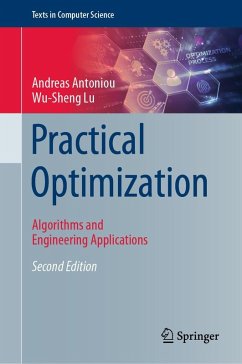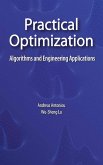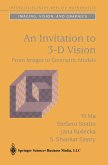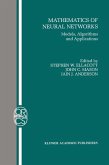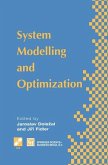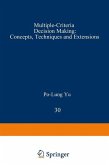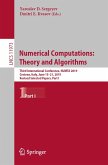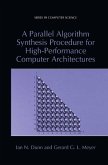In recent decades, advancements in the efficiency of digital computers and the evolution of reliable software for numerical computation have led to a rapid growth in the theory, methods, and algorithms of numerical optimization. This body of knowledge has motivated widespread applications of optimization methods in many disciplines (e.g., engineering, business, and science) and has subsequently led to problem solutions that were considered intractable not long ago.
This unique and comprehensive textbook provides an extensive and practical treatment of the subject of optimization. Each half of the book contains a full semester's worth of complementary, yet stand-alone material. In this substantially enhanced second edition, the authors have added sections on recent innovations, techniques, methodologies, and many problems and examples. These features make the book suitable for use in one or two semesters of a first-year graduate course or an advanced undergraduate course.
Key features:
With its strong and practical treatment of optimization, this significantly enhanced revision of a classic textbook will be indispensable to the learning of university and college students and will also serve as a useful reference volume for scientists and industry professionals.
Andreas Antoniou is Professor Emeritus in the Dept. of Electrical and Computer Engineering at the University of Victoria, Canada. Wu-Sheng Lu is Professor in the same department and university.
This unique and comprehensive textbook provides an extensive and practical treatment of the subject of optimization. Each half of the book contains a full semester's worth of complementary, yet stand-alone material. In this substantially enhanced second edition, the authors have added sections on recent innovations, techniques, methodologies, and many problems and examples. These features make the book suitable for use in one or two semesters of a first-year graduate course or an advanced undergraduate course.
Key features:
- proven and extensively class-tested content
- presents a unified treatment of unconstrained and constrained optimization, making it a dual-use textbook
- introduces new material on convex programming, sequential quadratic programming, alternating direction methods of multipliers (ADMM), and convex-concave procedures
- includes methods such as semi-definite and second-order cone programming
- adds new material to state-of-the-art applications for both unconstrained and constrained optimization
- provides a complete teaching package with many MATLAB examples and online solutions to the end-of-chapter problems
- uses a practical and accessible treatment of optimization
- provides two appendices that cover background theory so that non-experts can understand the underlying theory
With its strong and practical treatment of optimization, this significantly enhanced revision of a classic textbook will be indispensable to the learning of university and college students and will also serve as a useful reference volume for scientists and industry professionals.
Andreas Antoniou is Professor Emeritus in the Dept. of Electrical and Computer Engineering at the University of Victoria, Canada. Wu-Sheng Lu is Professor in the same department and university.
Dieser Download kann aus rechtlichen Gründen nur mit Rechnungsadresse in A, B, BG, CY, CZ, D, DK, EW, E, FIN, F, GR, HR, H, IRL, I, LT, L, LR, M, NL, PL, P, R, S, SLO, SK ausgeliefert werden.
From the reviews: "Textbook on optimization that provides broad coverage of algorithmic techniques of optimization as well as applications of these techniques to problems in electrical engineering. ... The applications presented in the book motivate the development of the algorithms and provide material for exercises. This is a very good way to introduce this audience to optimization. ... This textbook is appropriate for its intended audience of graduate students in electrical engineering ... ." (Brian Borchers, SIGACT News, Vol. 40 (1), 2010)

